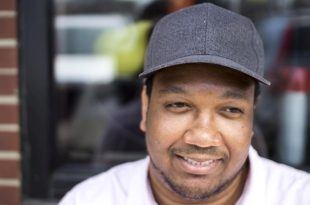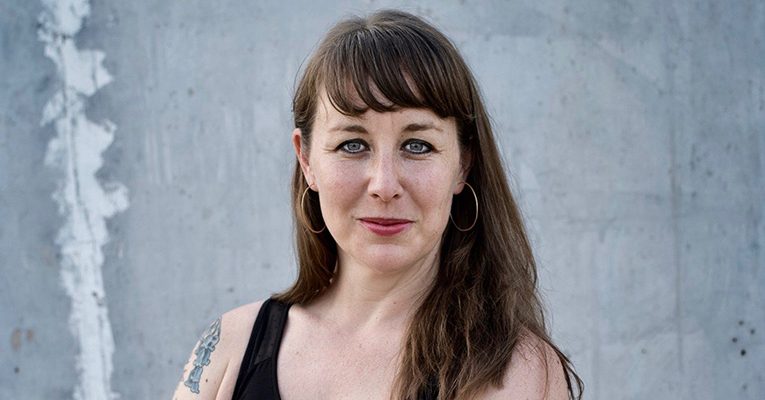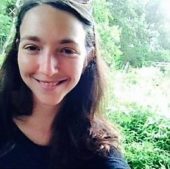 An excerpt from “Take Your Eye” by Laura Moretz (fiction, ’15), published in The Forge.
An excerpt from “Take Your Eye” by Laura Moretz (fiction, ’15), published in The Forge.
Also, The Forge offers an “Author Interview” here.
Take Your Eye
We were walking along South Street after group therapy when Keith popped out his glass eye. I knew he had a glass eye, and that he could pop it out, but even if I’d said, “Sure, I’d like to see your eye,” which I hadn’t, I wasn’t quite ready to see that glass ball in his hand, the ball so much larger than the area shown by his lids.
“The blue almost matches your real eye,” was the best I came up with. It looked so clean, as though it had never been moist and trapped in his socket.
He shrugged. “Nobody looks that close.” He held it up, between finger and thumb.
“Look how the light goes through it,” I said.
He wrapped his palm around it.
Eclipse.
It was no small thing that I let Keith drive me from Greensboro to our monthly group therapy for depressives who are also in AA. I had a rule about letting a man drive me anywhere since the last bad affair. I stayed out of their cars and their beds. But Keith was not a romantic prospect, and we could joke about the situation we were in. “We’re a glum lot,” he’d say about the depressives group in a monotone, and I chuckled.
The streetlights were starting to pop on along South Street. Keith had a distinctive way of walking—lumbering you could call it. He was so big, his fat fell under the Big Guy umbrella, as in, he was a big guy, so he was allowed to be fat. He talked about losing weight in a wishful way.
A few hundred feet before we reached the car, he stopped dead in front of a steak house. I could smell the seared meat. “Let’s eat.” He turned away from me to pop his eye back in.
[…continue reading here]











